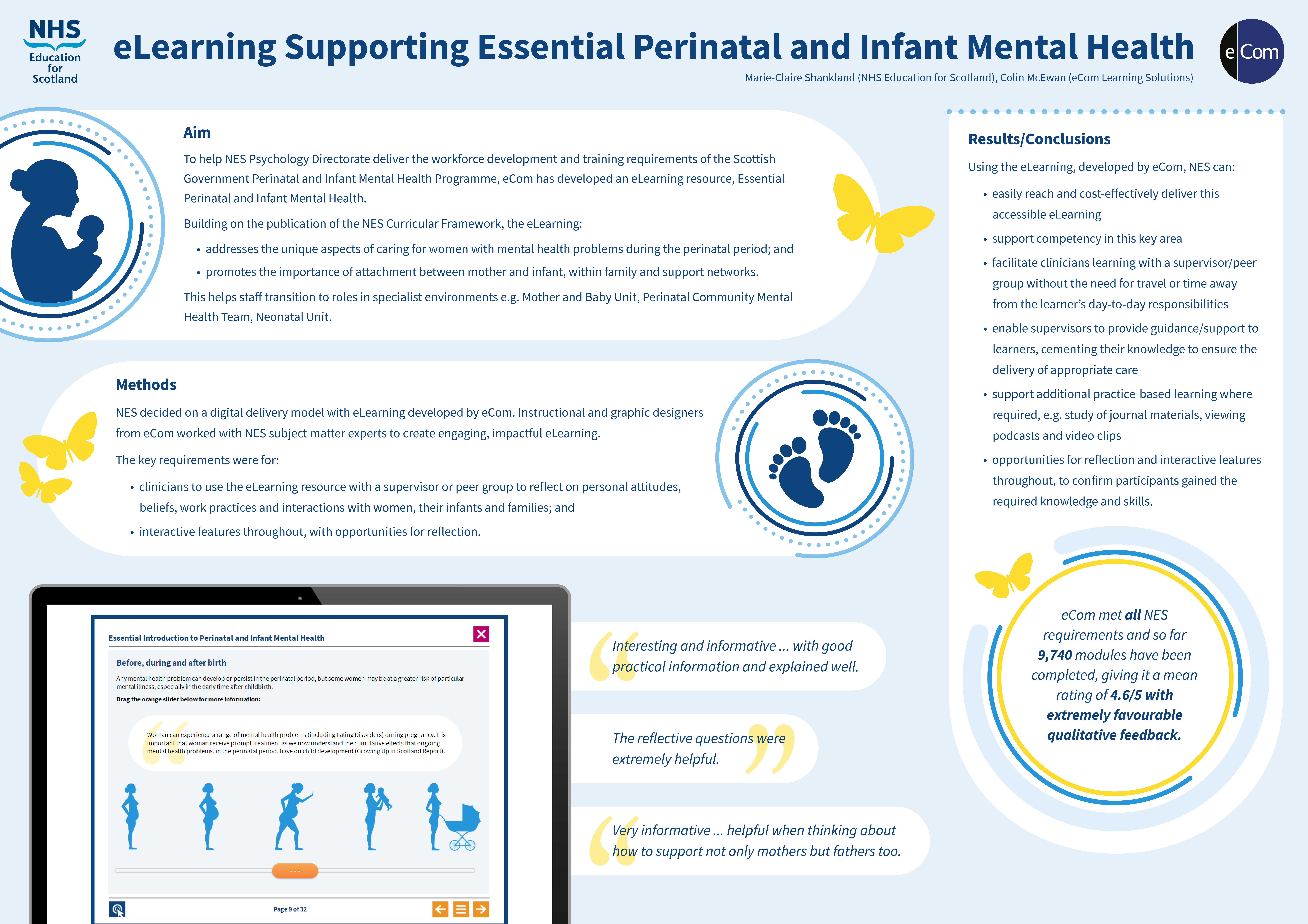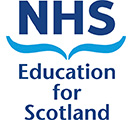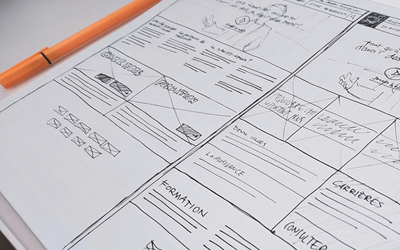Home / Case Studies / NES Workforce Development
NES Perinatal and Infant Mental Health Program Workforce Development
Setting the Scene
NES is a national health board responsible for supporting NHS services in Scotland by developing and delivering education and training for those who work in NHS Scotland. A key activity for the NES Psychology Directorate is delivering the workforce development and training requirements of the Scottish Government Perinatal and Infant Mental Health Program.
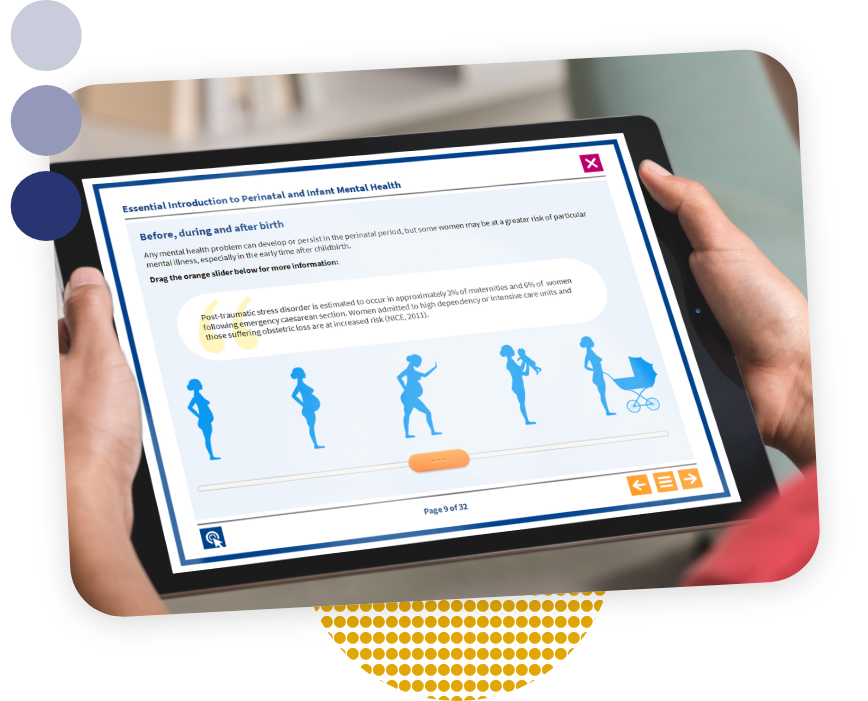
The Challenge
NES wanted to create a learning resource, ‘Essential Perinatal and Infant Mental Health’, to build on the publication of their Perinatal and Infant Mental Health Curricular Framework. The workforce learning resource needed to highlight the unique aspects of caring for women with mental health problems during the perinatal period, as well as the importance of promoting attachment between mother and infant, within the context of their family and support network.
NES were looking to stimulate the interest of new staff working in specialist areas to help them develop a better understanding of the risks to women and their eLearning Supporting Essential Perinatal and Infant Mental Health infant in the perinatal period. The learning resource was therefore required to support staff through the transition into working in a specialist environment e.g. Mother and Baby Unit, Perinatal Community Mental Health Team, Neonatal Unit. NES also wanted to encourage clinicians, through learning activities, to reflect on personal attitudes, beliefs and work practices as well as how they interact with women and their infants and families. As clinicians would be encouraged and advised to work through the content together with a supervisor or a group of peer learners, the new learning resource needed to support this.
The Solution
Having decided on a digital delivery model, NES issued a competitive tender to help them select a provider. eCom was delighted to be chosen as the winning bidder and our instructional design team worked closely with the subject matter experts at NES to make the content easy to navigate and suitable for use with a supervisor or peer group of learners. eCom’s ID team and graphic designers worked together to create an engaging and impactful learning resource that would bring the NES vision to life.
Opportunities for reflection and a number of interactive features such as knowledge checks were included throughout the resource, as well as a graded quiz at the end. This helps confirm that participants have gained the required knowledge, skills and attitudes set out in the NES Perinatal and Infant Mental Health Curricular Framework. eCom also ensured compliance with the current accessibility legislation for eLearning content. The majority of the seven eLearning modules forming the resource were developed expeditiously during the period when the strictest COVID-19 lockdown measures were in force. This is testament to the robust eLearning development process at eCom and the close, collaborative working relationships established with NES. eCom produced the modules using an agile approach and an iterative development process. eCom met all of the NES requirements, with the result being a high-quality, useful and informative eLearning resource that supports additional practice-based learning tasks where required, such as the study of journal materials, viewing podcasts and video clips.
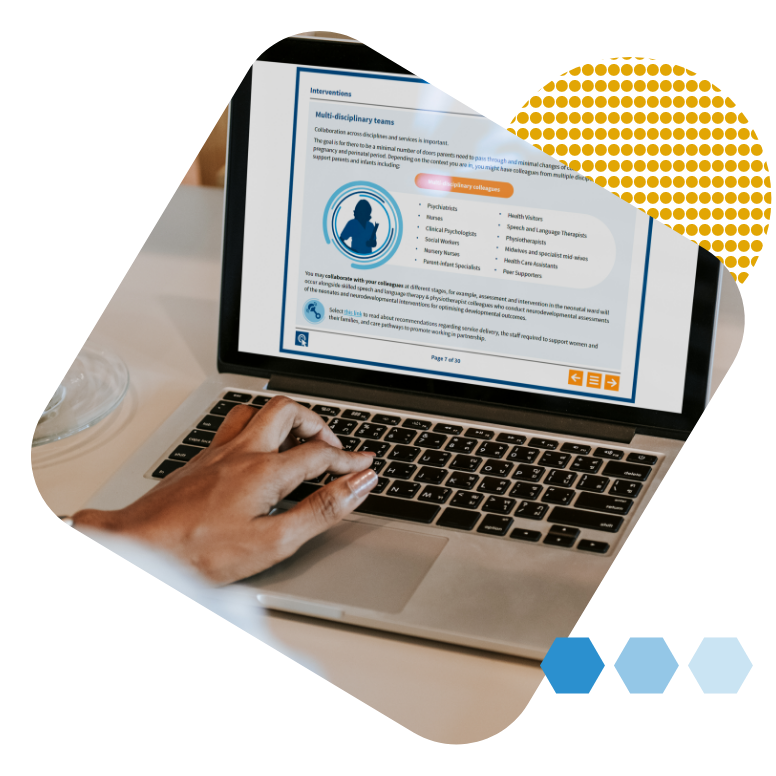
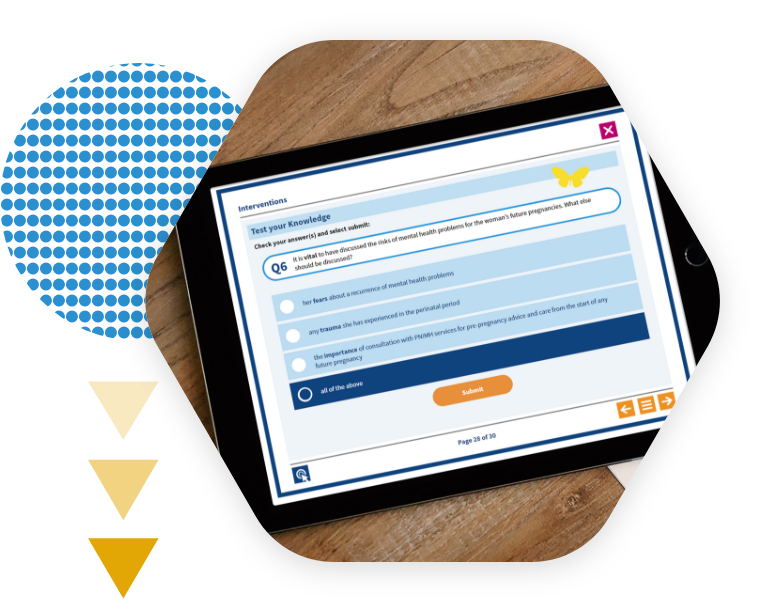
The Benefits
The eLearning produced by eCom, helps NES easily reach and deliver training to the intended audience in an engaging way, helping the workforce development of the knowledge, skills and attitudes to ensure they deliver appropriate care. They are able to work through the content with a supervisor or a group of peer learners at a time that is most suitable for them. This flexibility ensures that training can be easily fitted around existing work commitments. Supervisors are able to provide instant guidance and support to help learners get the most from the learning experience.
This blended approach helps cement the learner’s knowledge. Using a digital delivery model ensures that training can be delivered in a cost-effective way, removing the need for travel or time away from the learner’s day-to-day responsibilities. The content can also act as a refresher if required. Ultimately the learning resource help NES support competence for NHS eLearning.
Download a PDF version of this case study
